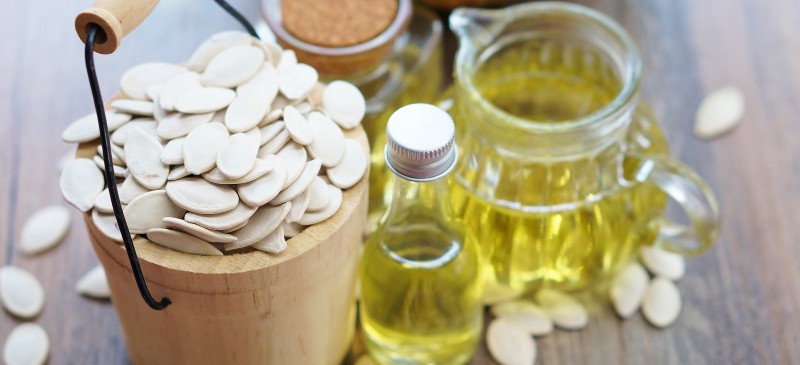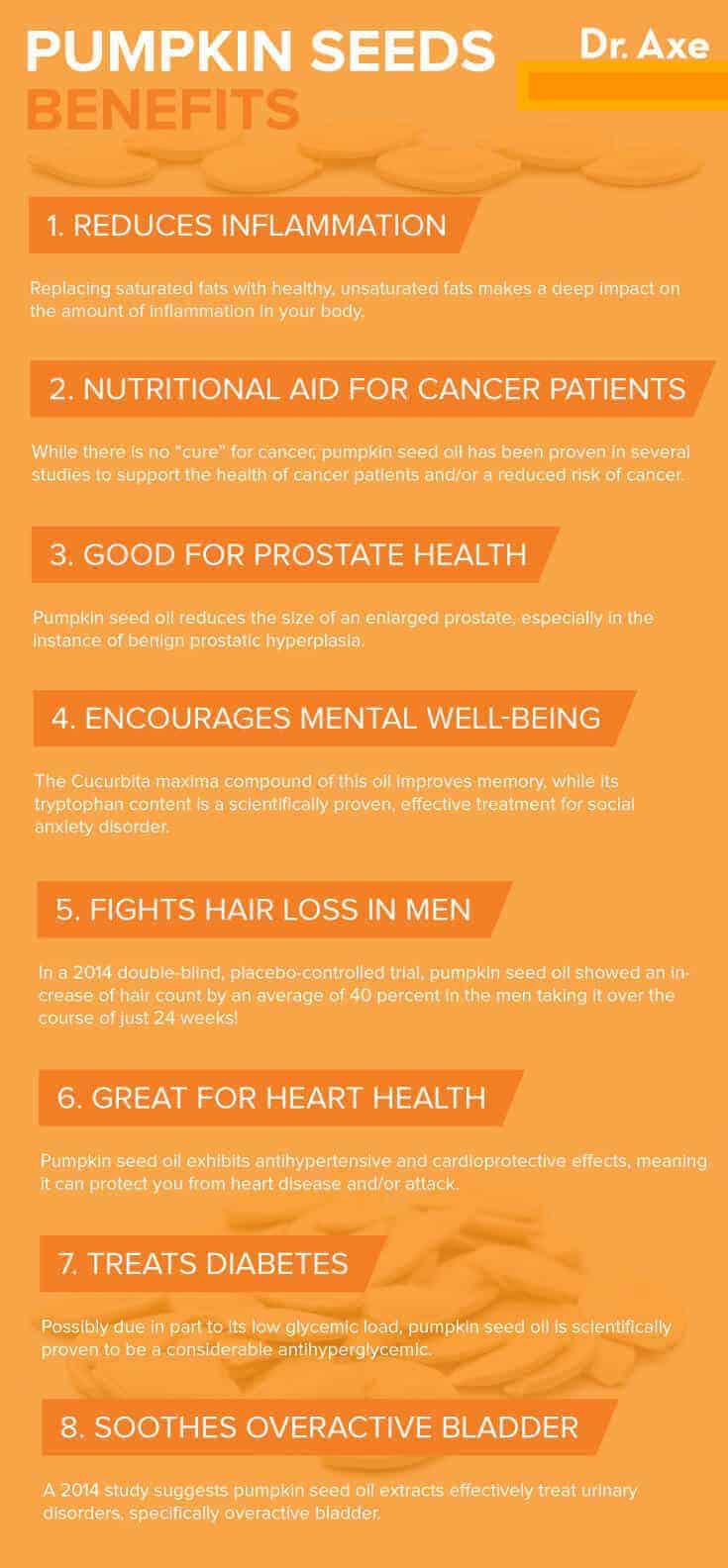This Dr. Axe content is medically reviewed or fact checked to ensure factually accurate information.
With strict editorial sourcing guidelines, we only link to academic research institutions, reputable media sites and, when research is available, medically peer-reviewed studies. Note that the numbers in parentheses (1, 2, etc.) are clickable links to these studies.
The information in our articles is NOT intended to replace a one-on-one relationship with a qualified health care professional and is not intended as medical advice.
This article is based on scientific evidence, written by experts and fact checked by our trained editorial staff. Note that the numbers in parentheses (1, 2, etc.) are clickable links to medically peer-reviewed studies.
Our team includes licensed nutritionists and dietitians, certified health education specialists, as well as certified strength and conditioning specialists, personal trainers and corrective exercise specialists. Our team aims to be not only thorough with its research, but also objective and unbiased.
The information in our articles is NOT intended to replace a one-on-one relationship with a qualified health care professional and is not intended as medical advice.
Pumpkin Seed Oil Benefits Prostate & Heart Health
October 28, 2018

The thought of pumpkins may have you itching for fall, lattes and pie, but you’re about to find out that pumpkin isn’t just for autumn anymore — if you want to fight disease all year long, that is! In fact, pumpkin seed oil is a handy ingredient to keep around and use on a daily basis to improve your metabolic and physiological health, similar to benefit-rich black seed oil. (1)
Packed with tryptophan, unsaturated fatty acids and a high level of antioxidative substances, this silent champion provides a long list of benefits to both men and women. When the oil from these little seeds is extracted just right (not refined), the possibilities are virtually endless!
Thanks to its high content of carotenoids and liposoluble vitamins, pumpkin seed oil has long been considered an ingredient appropriate for illness prevention, especially for prostate diseases. In addition to that well-known use, research has shown benefits for people struggling with hair loss, diabetes and even cancer.
What Is Pumpkin Seed Oil?
Pumpkin seed oil, also called pepita oil, is the oil extracted from the seeds of a pumpkin. There are two main types of pumpkins from which the oil is obtained, both of the Cucurbita plant genus. One is Cucurbita pepo, and the other is Cucurbita maxima.
The process of extracting pumpkin seed oil can be done more than one way. You want to choose an oil that has been cold-pressed, which means the oil has been extracted out of the pumpkin seeds using pressure rather than heat. The cold-pressed method of extraction is preferable because it allows the oil to retain its beneficial antioxidants that would be lost or damaged due to heat exposure. (2)
Research shows that the oil extracted from pumpkin seeds using cold pressure is “an important source of many healthy components such as antioxidant and antimicrobial agents.” (3) Refined oils are made using heat and chemicals and consequently produce less nutritious and healthy final products.
What is pumpkin seed oil used for? You’re about to find out the many uses and benefits of pumpkin seed oil.
Health Benefits
- Reduces Inflammation
- Nutritional Aid for Cancer Patients
- Good for Prostate Health
- Encourages Mental Well-Being
- Fights Hair Loss in Men
- Great for Heart Health
- Helps Manage Diabetes
- Soothes Overactive Bladder
1. Reduces Inflammation
Replacing saturated fats with healthy, unsaturated fats makes a deep impact on the amount of inflammation in your body. In fact, a research study in 2015 found that replacing cocoa butter with pumpkin seed oil in the diet of people suffering from nonalcoholic fatty liver disease and atherosclerosis (plaque buildup in the walls of the arteries) reduced the effects of these diseases on test subjects. (4)
If you’re seeking to live a disease-free life, introducing anti-inflammatory foods and supplements into your diet is one of the key actions you need to take.
2. Nutritional Aid for Cancer Patients
You read that right! While there is no “cure” for cancer, pumpkin seed oil has been proven in several studies to support the health of cancer patients and/or a reduced risk of cancer.
Pumpkin seeds are one vegetable seed proven to help reduce the risk of breast cancer in post-menopausal women. (5) Additional research from the University of Rostock’s Department of Obstetrics and Gynaecology in Germany has found the nutritional value of pumpkin seeds to possibly prevent and treat breast cancer. (6)
The future is promising for men as well as women — pumpkin seeds may also reduce or inhibit the growth of prostate cancer cells. (7)
For those currently being treated for cancer, pumpkin seed oil may also be an answer to common problems. A research study published in the Indian Journal of Biochemistry & Biophysics reveals that pumpkin seed oil’s antioxidant properties create a filter for radiation and protect against or prevent small intestinal damage from methotrexate, a treatment for several types of cancer and also rheumatoid arthritis. (8)
3. Good for Prostate Health
Perhaps the most well-documented aid of pumpkin seed oil for health is its vast effectiveness on maintaining a healthy prostate. It has been known to protect against prostate cancer, but it’s also great for prostate health in general.
Long used as a folk medicine for prostate health, research has shown that pumpkin seed oil can help to reduce the size of an enlarged prostate, especially in the instance of benign prostatic hyperplasia (age-related prostate enlargement).
A study published in 2009 reveals that men who consumed 320 milligrams of pumpkin seed oil each day of for six months saw a reduction in their symptoms and improved quality of life. The researchers conclude that pumpkin seed oil (as well as saw palmetto oil) “are clinically safe and may be effective as complementary and alternative medicine treatments for benign prostatic hyperplasia.” (9)
That’s why pumpkin seed oil use is one of three steps to improve prostate health!
4. Encourages Mental Well-Being
We all need to consider the health of our brains and mental states. Studies using animal subjects demonstrate the impressive anti-depressive effects of pumpkin seeds with a reduction in depression similar to that of standard drugs. (10)

Related: Kabocha Squash Nutrition Benefits Digestion, Blood Sugar & More
5. Fights Hair Loss in Men
Is pumpkin oil good for your hair? The management of hormones in a healthy diet is key to stopping and/or reversing hair loss, as it is linked to an increase in an androgen hormone, DHT (dihydrotestosterone). Pumpkin seeds act as a hair loss remedy due to their zinc content, which helps balance hormones, thus in turn benefits hair growth.
Can pumpkin seed oil regrow hair? It just may help according to some research. In a 2014 double-blind, placebo-controlled trial, pumpkin seed oil hair loss benefits were apparent, as men who took the oil over the course of 24 weeks showed an increase of hair count by an average of 40 percent. (11)
6. Great for Heart Health
Is it any surprise that an anti-inflammatory supplement would be great for the heart? Through a process that may involve the production of nitric oxide, pumpkin seed oil exhibits antihypertensive and cardioprotective effects, meaning it can protect you from heart disease and/or heart attacks. (12)
It also reduces diastolic blood pressure while raising HDL “good” cholesterol and improving menopause symptoms in postmenopausal women, according to a randomized, double-blinded, placebo-controlled, pilot study of 35 women published in Climacteric: The Journal of the International Menopause Society. (13)
7. Helps Manage Diabetes
Diabetes has many causes, one of which is poor diet. Both type 1 and type 2 diabetes are manageable, and even treatable, with good diet strategies and supplements. Research shows that the fruit pulp, oil from ungerminated seeds and protein from germinated seeds of pumpkin all have have blood sugar-lowering properties. (14) This makes oil from pumpkin seeds a good addition to any diabetic diet plan.
8. Soothes Overactive Bladder
A 2014 study published in the Journal of Traditional and Complementary Medicine suggests pumpkin seed oil extracts (from both the Cucurbita pepo and Cucurbita maxima varieties) effectively treat urinary disorders, specifically overactive bladder. (15) This indicates consuming this oil is an important part of maintaining a healthy excretory system.
Related: 9 Natural Testosterone Boosters for More Energy, Better Sleep + More
Nutrition Facts
One tablespoon of organic pumpkin seed oil contains about: (16)
- 120 calories
- 14 grams fat
Meanwhile, one cup of unsalted pumpkin seed nutrition contains about: (17)
- 285 calories
- 34.4 grams carbohydrates
- 11.9 grams protein
- 12.4 grams fat
- 11.8 grams dietary fiber
- 6.6 milligrams zinc (44 percent DV)
- 168 milligrams magnesium (42 percent DV)
- 588 milligrams potassium (17 percent DV)
- 52.1 milligrams iron (12 percent DV)
- 59 milligrams phosphorus (6 percent DV)
- 35 milligrams calcium (4 percent DV)
A 2014 study points out that pumpkin seed oil contains a “a range of biologically significant fatty acids.” (18) Pumpkin seeds are are especially rich in beneficial monounsaturated oleic acid (18:1) and polyunsaturated linoleic acid (18:2), which is said to account for approximately 26 percent and 51 percent of the total pumpkin oil, respectively. (19)
Uses in Traditional Medicine
In Traditional Chinese Medicine (TCM), pumpkin seeds are considered to have sweet and neutral properties. Pumpkin seeds and oil are typically associated with the stomach and large intestine meridians. TCM practitioners may use pumpkin seed products to rid the body of parasites or to help with pain. (20)
In Ayurveda, pumpkin seeds and oil are usually recommended for all three doshas with the kapha type typically being advised to have the smallest amount of oils in their diets in general. In Ayurvedic medicine, pumpkin seeds and oil are often used for removing toxic deposits and cleansing the body.
Historically, pumpkin seeds have been used as a vermifuge (an antiparasitic medicine) for intestinal parasites and worms. (21) In fact, the use of the seeds by Native Americans for the treatment of intestinal infections eventually led the United States Pharmacopoeia to list pumpkin seeds as an official medicine for parasite elimination from 1863 to 1936. (22)
Where to Find and How to Use
If you’re curious where to buy pumpkin seed oil, you can find it at health stores, grocery stores or online. Look for a brand that is unrefined, virgin and cold-pressed. Pumpkin seed oil, extracted from roasted pumpkin seeds, should not be “cooked,” as heat destroys many of its best health properties and produces a bitter taste. The most common intake of pumpkin seed oil for health is through the use of pumpkin seed oil capsules or in liquid form as a supplement to a health-conscious lifestyle.
Wondering how to use pumpkin seed oil? One delicious way to use pumpkin seed oil in food, prevalent in Eastern Europe, is as a salad dressing, either by itself or in combination with other healthy oils.
Storage is key to keeping pumpkin seed oil fresh. Warmth and light easily oxidize the polyunsaturated fats in pumpkin seed oil, causing it to go rancid. Therefore, it should be bottled, sealed and stored in a cool, dark place. It’s important to remember that the fresh, nutty taste of the oil will dissipate after it’s first opened, though it remains good for 12 months, sometimes longer.
Is pumpkin seed oil bad? You can tell when this oil has gone bad by smelling it since oxidation of the oil produces a pretty nasty scent. It’s also smart to wipe any stray drops from the outside of the bottle or cap before storing it away — after all, it’s not appetizing to smell rancid oil when you’re preparing for a delicious meal!
Recipes
One of my favorite fresh salsa recipes is my Cranberry Salsa, paired with crackers or vegetables. This dish includes pumpkin seed oil and shelled pumpkin seeds, ensuring a scrumptious celebration of the many benefits of this incredible ingredient.
You can try these other pumpkin seed oil and pumpkin seed recipes as well:
Related: 40 Pumpkin Recipes (Not Your Traditional Pumpkin Pie)
Supplements and Dosage
Read product labels carefully for an appropriate pumpkin seed oil dosage. If you’re curious about pumpkin seed oil capsules benefits, check with your doctor first if you are being treated for a medical condition, are currently taking medication, or are pregnant or nursing.
The following doses taken by mouth have been studied in scientific research: (23)
- For male baldness: 400 milligrams per day in divided doses.
- For benign prostatic hyperplasia (BPH):
- 5 grams pumpkin seed twice daily
- 1–2 tablets or capsules of pumpkin see oil or extract products daily
- 160 milligrams pumpkin see oil 1–3 times daily in combination with saw palmetto and other ingredients
History
Pumpkin seeds have been popular for centuries, dating back as early as 1300 A.D., when Native Americans celebrated them for both dietary and medicinal benefits, beginning with the Aztec cultures and spreading to the rest of Native America. After being spread to Europe, these seeds became an integral part of the diet for many areas in Eastern Europe and the Mediterranean (notably, Greece). Now, pumpkin seeds have entered traditional food and medicine practices in India and other areas of Asia.
Although the health benefits of pumpkin seed oil are quite impressive on their own, that’s not the only good thing about it. Interestingly, recent research has found pumpkin seed oil (and other vegetable oils) to be a potential source of biofuel.
I already mentioned the possible pumpkin seed oil hair-boosting effects, but when it comes to beauty, the benefits of pumpkin seeds oil don’t stop there. Is pumpkin seed oil good for your skin? Yes, it is often praised as a “superhero ingredient” in skin care, too, due to the essential fatty acids, vitamins and minerals contained within it. The use of pumpkin seed oil for skin and homeopathic beauty routines may serve to treat acne, fight free radical damage, moisturize and much more. (24) Is pumpkin seed oil good for oily skin? It may be surprising, but oils like pumpkin seed can actually help to balance oil production in the skin when used in small amounts.
Risks and Side Effects
There are no known pumpkin seed oil side effects. Of course, you should always check with your doctor before taking pumpkin seed oil if you have any ongoing health conditions, are taking medication, or are pregnant or breastfeeding. Pumpkin seed oil is generally considered safe in food amounts and medicinal amounts for most people. It is very important to never use rancid pumpkin seed oil or supplements.
Final Thoughts
- Pumpkin seed oil is extracted highly nutritious pumpkin seeds.
- Look for an oil that is virgin, unrefined and cold-pressed.
- This oil is often associated with men’s health due to its well-known prostate benefits, but as you can now see there are many pumpkin seed oil women’s health benefits too.
- Like pumpkin seeds benefits, pumpkin seed oil benefits are plentiful! Some of the top benefits include:
- Inflammation reduction
- Nutritional aid
- Anti-cancer properties
- Improves prostate health
- Encourages good mental health
- Helps hair loss
- Boosts skin health
- Beneficial to heart health
- Blood sugaring lowering for diabetes
- Soothes overactive bladder

